South Korea announces new National Security Strategy, Finnish Foreign Minister runs for president... are some notable international news in the past 24 hours.
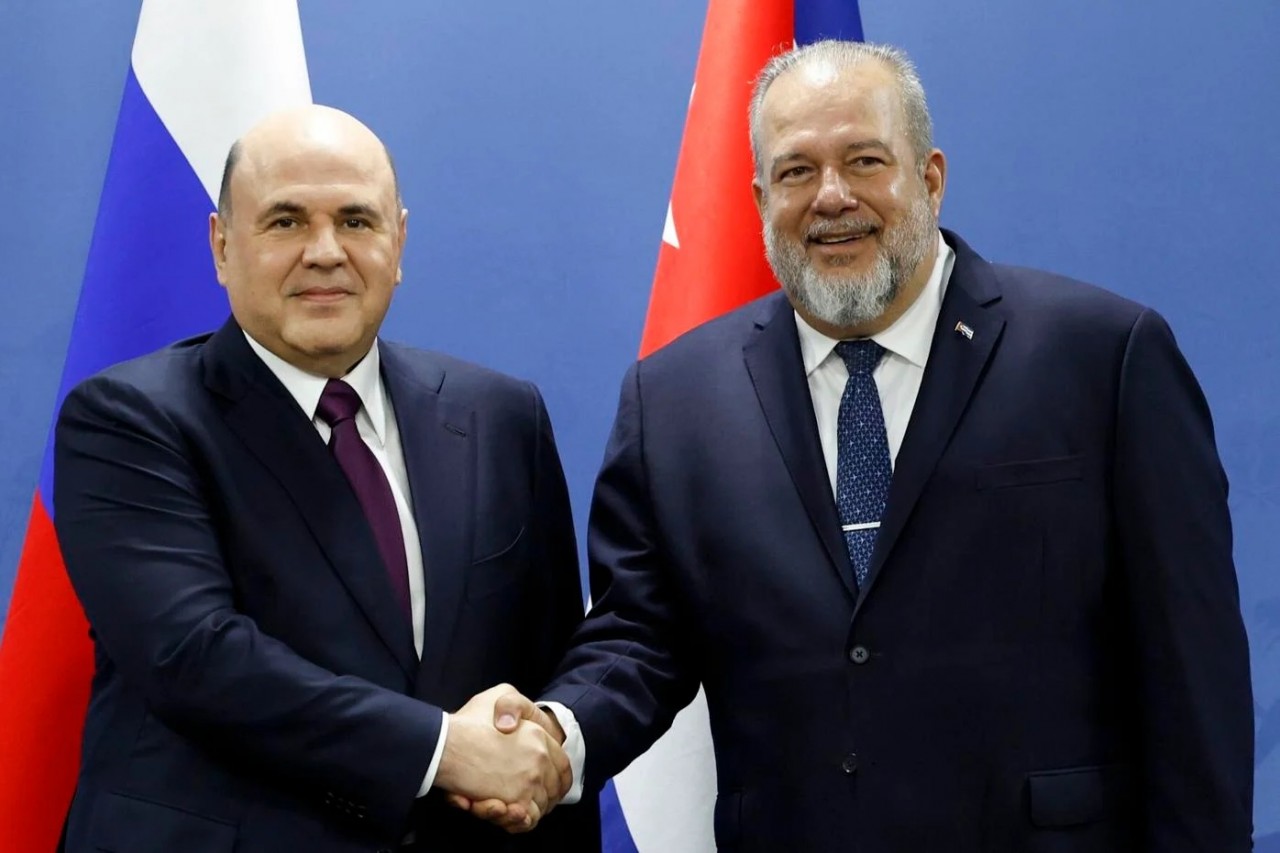 |
| Cuban Prime Minister Manuel Marrero Cruz met with his Russian counterpart Mikhail Mishustin during his visit to the country from June 6 to 17. (Source: WVNews) |
The World & Vietnam Newspaper highlights some of the day's international news highlights.
Russia-Ukraine
* Russia accuses Ukraine of destroying Kakhovka dam at ICJ: On June 8, speaking at the International Court of Justice (ICJ) of the United Nations (UN) about the collapse of the Kakhovka dam in southern Ukraine controlled by Russia after "large-scale" shelling, Russian diplomat Alexander Shulgin said: "The Kiev government not only carried out large-scale shelling of the Kakhovka dam on the night of June 6, but also deliberately raised the water level of the Kakhovka reservoir to dangerous levels." (AFP)
* Ukrainian President visits Kherson after Kakhovka dam collapse: On June 8, the leader said he had visited the flooded southern part of Kherson city after the Kakhovka dam collapse. Posting on Telegram , he wrote: “We discussed many important issues. The actual situation in the disaster area (dam collapse), evacuation of people from flood-risk areas, lifting of the state of emergency after the dam collapse, organizing support activities for the flooded area... prospects for restoring the region's ecosystem and the military situation in the disaster area.”
Meanwhile, speaking on television, Ihor Syrota, general director of Ukrhydroenergo, the state-owned company that oversees the Kakhovka Hydropower Station, said: “The reservoir is close to the dangerous low level of 12.7 meters, after which there will be no water for the cooling ponds at the Zaporizhzhia plant or for all regions.” But Ukrhydroenergo officials said the company was ready to repair the hydropower plant and the dam as soon as possible, once Russian troops leave the eastern part of Dnipro. This process will take about two months.
Earlier in the day, Ukraine's nuclear energy company said the situation was "stable and under control" at the Zaporizhzhia nuclear power plant.
For its part, the International Committee of the Red Cross warned of the risk of mine explosions due to rising floodwaters after the Kakhovka dam collapse. “Before, we knew where the hazards were. Now we don’t know. All we know is that they are somewhere downstream,” said Erik Tollefsen, head of the agency’s Mine Action Unit. The expert said that mines could still be lying on the beach or stuck in river mud or in fields, gardens and roads across a wide area.
Meanwhile, Russian-backed groups in the Kherson region said the mines could have appeared in flooded towns and villages. (Reuters)
* France, Czech Republic, Brazil plan to provide aid to Ukraine over Kakhovka dam collapse : On June 7, writing on Twitter , French President Emmanuel Macron said: "I send to Ukrainian President Volodymyr Zelensky my solidarity with the Ukrainian people after the attack on Kakhovka dam." The leader also affirmed: "In the next few hours, we will send aid to meet immediate needs."
Meanwhile, the Lidovky (Czech) newspaper quoted Prime Minister Petr Fiala as saying that Prague “decided to provide aid to Ukraine” related to the dam collapse and “the (Czech) Ministry of Defense will provide some necessary things to Ukraine now to overcome the problems related to this disaster”.
According to media reports, the aid will include life rings and life jackets, water pumps and drinking water supplies. Meanwhile, Foreign Minister Jan Lipavsky said Prague would allocate 10 million crowns ($430,000) in aid to Ukraine.
Also on June 7, the Brazilian Foreign Ministry announced that the country is ready to provide assistance to mitigate the consequences of the Kakhovka dam collapse in Ukraine. (Sputnik)
* Wagner sets conditions to prevent Ukraine from counterattacking: On June 7, the founder of Wagner Private Military Group, Mr. Yevgeny Prigozhin, stated: “I said that I need 200,000 people. Less than 200,000 on the Lugansk-Donetsk frontline will not be able to cope. We are ready to take full responsibility.” He is concerned that the Ukrainian army can retake territories controlled by Russia.
The head of Wagner said that the group is currently the only official military structure that has all the necessary components for combat operations, including planes, helicopters, tanks, and artillery. This figure said that the main problem now is providing weapons and ammunition to the army. According to him, despite the presence of trained gunmen, the most important factor leading to the success of the campaign will be the ability to provide suitable weapons and ammunition. (TTXVN)
* Russia : US pressure makes Ukraine leave negotiations : On June 8, Secretary of the Russian Security Council Nikolai Patrushev mentioned the March 2022 peace talks in Turkey: "Without US pressure on Ukraine, this situation would not have happened. The Ukrainian leaders themselves are ready to sign a peace treaty and give Russia written proposals that we have accepted in principle."
“In the morning, they (members of the Ukrainian delegation) presented (the proposals) to us during the negotiations, and in the evening they said: 'No, we abandon them.' This happened only because the United States put pressure on them and said that there was no need to hold negotiations,” the senior official also said. (TASS)
| RELATED NEWS | |
| Kakhovka Dam Break: President Zelensky personally visits the site; Russia denounces Ukraine at the Court of Justice | |
Southeast Asia
* Singapore presidential election has more candidates : On June 8, Senior Minister and Chairman of the Monetary Authority of Singapore Tharman Shanmugaratnam informed Prime Minister Lee Hsien Loong that he will resign from all current positions in the government.
The decision comes from the politician's intention to run for President of Singapore, in the election scheduled to be held before September 13. Currently, Mr. Tharman Shanmugaratnam is the Chairman of the Monetary Authority of Singapore (MAS) and has other responsibilities as a Minister.
For his part, Prime Minister Lee Hsien Loong said he understood the decision and believed that "this is consistent with the spirit of community service and sense of responsibility that Mr. Tharman has shown over the years." (VNA)
| RELATED NEWS | |
| The most expensive city in the world: Hong Kong (China) drops in rank, Singapore unexpectedly increases | |
South Asia
* Foreign Minister Jaishankar: India stands firm under pressure : On June 8, speaking at a foreign policy press conference, Foreign Minister S Jaishankar asserted that after nine years of Prime Minister Narendra Modi's rule, India is not swayed by coercion, incitement and false stories.
Citing India’s approach to the situation along its northern border and its opposition to China’s Belt and Road Initiative, Foreign Minister Jaishankar said India and China must find a way to disengage.
Besides, Foreign Minister Jaishankar stated: “The second image of India is that of an economic partner… The world, especially the Southern Hemisphere, sees India as an effective and reliable development partner with practical actions.” He said India is creating a great economic impact and is globally recognized. (VNA)
| RELATED NEWS | |
| Indian Prime Minister visits Egypt for the first time | |
Northeast Asia
* Russia speaks out about Japan's wastewater discharge plan : On June 7, Russian Foreign Ministry spokeswoman Maria Zakharova expressed concern about the plan to discharge wastewater from the Fukushima nuclear power plant and urged Japan to inform its neighbors about its moves to address the potential radiation threat.
The Russian diplomat also stressed the importance of transparency and demanded access to information and water samples if needed. Japan has not yet been open to addressing these concerns, she said, noting that Moscow has sent a list of questions to Tokyo seeking clarification on the release plan.
Previously, Japan affirmed that the planned release of radioactive water does not pose any significant threat to the environment or health of people in the area. (Xinhua)
* Japan protests Chinese naval ship's entry into territorial waters : On June 8, Chief Cabinet Secretary Matsuno Hirokazu said Tokyo expressed "strong concern" and sent a protest note to Beijing after the Chinese Navy entered Japanese waters near Yakushima Island. He also said two Chinese coast guard ships also entered the Diaoyu/Senkaku Islands area and tried to approach a Japanese fishing boat. (Reuters)
* South Korea takes initiative to improve relations with Japan: On June 7, Seoul announced its first National Security Strategy under President Yoon Suk Yeol. In the new strategy, the country regards Tokyo as an important neighbor and seeks cooperation in areas including national security and the economy. The strategy calls on the two countries to face the past frankly and build a new future, reiterating the spirit of the 1998 Japan-South Korea joint statement.
The document also marks a shift in President Yoon’s stance on North Korea. While the previous government emphasized peaceful solutions to differences, the latest strategy identifies Pyongyang’s nuclear weapons capabilities as the “most urgent” threat to Seoul. The document also stresses the importance of South Korea being able to ensure its ability to deter threats, launch preemptive strikes, and retaliate in a massive manner when necessary. (Yonhap)
| RELATED NEWS | |
| Russia and China send fighter jets on joint patrol, South Korea and Japan speak out | |
Central Asia
* Tajikistan will not join the Eurasian Economic Union : On June 7, the country's Foreign Ministry said that Dushanbe has refused to join the Eurasian Economic Union (EAEU) because it does not see its interests in this organization. The representative of the Tajik Foreign Ministry also made it clear that the possibility of Tajikistan's integration into the EAEU was not discussed at recent meetings, specifically the June 6 meetings between Foreign Minister Lavrov and the host country's President Emomali Rahmon and with Tajikistan's Foreign Minister Sirojiddin Muhriddin.
Previously, Russian Foreign Minister Sergei Lavrov hoped Tajikistan would join this bloc. (TTXVN)
| RELATED NEWS | |
| French Scholar: Where Does Kazakhstan Position itself in Sino-Russian Relations? | |
Europe
* Russia: Togliatti- Ode pipeline explosion has a “ negative ” impact on the grain deal : Speaking to reporters on June 8, Kremlin spokesman Dmitry Peskov said: “This is another incident that really complicates the situation regarding the extension of this agreement.”
Togliatti-Odessa is a pipeline that transports fertilizer from Russia to Ukraine. The resumption of Russian fertilizer exports via this route was one of Moscow's conditions for continuing the Black Sea grain deal.
However, on June 7, Russia said a group of Ukrainian “saboteurs” had blown up part of the Togliatti-Odessa pipeline. For their part, Kiev officials accused Moscow of firing at the 2,500-km pipeline. (AFP)
* Finnish Foreign Minister announces presidential run : On June 8, Mr. Pekka Haavisto announced that he will run for president in next year's election.
“Recently, many Finns from different parts of Finland have contacted me and asked me to run for president in the January elections,” the Finnish foreign minister explained at a news conference. This will be the third attempt by Mr. Haavisto, a member of the Green Party, to become Finland’s head of state, after coming second in the 2012 and 2018 elections. (Reuters)
| RELATED NEWS | |
| Newly joining NATO, Finland announced the expulsion of 9 Russian diplomats | |
America
* Cuba assesses US stance towards Russia: On June 7, during talks with his Russian counterpart Mikhail Mishustin, Cuban Prime Minister Manuel Marrero Cruz said that the first stop of High Representative for Foreign Affairs and Security Policy and Vice President of the European Commission Josep Borrell during his visit to Havana last May was the US Embassy. At the same time, Mr. Borrell also repeatedly mentioned Russia in his speeches during his visit to Cuba. Prime Minister Marrero Cruz emphasized that after the Russia-Cuba business forum last month in Havana, a smear campaign against the two countries is being launched in the US.
The Cuban Prime Minister is currently on an official visit to Russia from June 6-17. He is expected to attend the meeting of the Eurasian Intergovernmental Council in Sochi, the International Economic Forum in Saint Petersburg and sign many important agreements with Russian partners.
The traditional alliance was further fueled last month when both countries agreed to increase Russia’s business and financial presence in the Caribbean island nation through tariff exemptions, 30-year land leases and banking connections. The agreements reached during a bilateral economic and business forum in the Cuban capital also promise to open the way for Russian investors to participate in a number of strategic sectors of the Caribbean nation.
In less than half a year, Russian Foreign Minister Sergei Lavrov, State Duma Chairman Vyacheslav Volodin, Presidential Economic Advisor Maxim Oreshkin, Secretary of the Security Council Nikolai Patrushev and Rosneft CEO Ígor Sechin, along with many other Russian officials, have visited Cuba. (TTXVN)
| RELATED NEWS | |
| Iranian President to visit 3 Latin American countries | |
Middle East-Africa
* Iran speaks out about missile launches: On June 7, Iranian Foreign Ministry spokesman Nasser Kanaani emphasized that the Islamic Republic's missile activities are normal, defensive and legal based on international law.
He rejected the claims of interference by some Western countries regarding the Fattah missile. The Iranian diplomat stressed that these countries, with their long history of violating international commitments in nuclear testing, the nuclear non-proliferation regime, atomic missiles as well as engaging in regional and international sabotage, have no right to comment on Iran's legitimate defense capabilities.
Mr. Nasser Kanaani also noted that the signing of the AUKUS agreement by the US, UK and Australia is a discriminatory approach by nuclear powers in technology transfer and highly enriched uranium activities as well as contrary to the Nuclear Non-Proliferation Treaty (NPT).
The diplomat also appreciated the efforts of the Islamic Republic's armed forces in building and strengthening effective deterrence capabilities in the face of foreign threats and protecting national security. (IRNA)
Source




![[Photo] Prime Minister Pham Minh Chinh chairs a meeting of the Government Standing Committee on overcoming the consequences of natural disasters after storm No. 11](https://vphoto.vietnam.vn/thumb/1200x675/vietnam/resource/IMAGE/2025/10/09/1759997894015_dsc-0591-jpg.webp)

![[Photo] Prime Minister Pham Minh Chinh chairs the Conference to deploy the National Target Program on Drug Prevention and Control until 2030](https://vphoto.vietnam.vn/thumb/1200x675/vietnam/resource/IMAGE/2025/10/09/1759990393779_dsc-0495-jpg.webp)







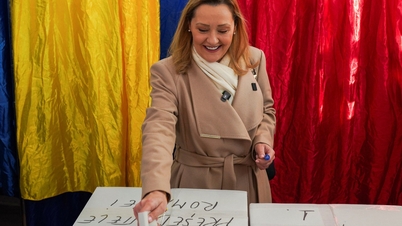



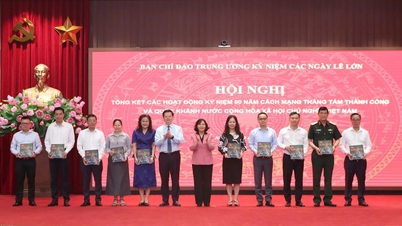



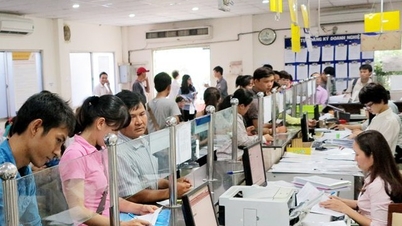
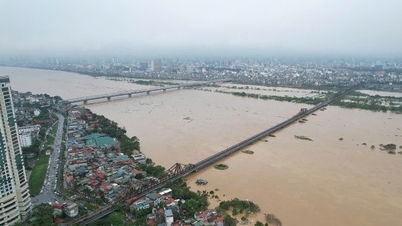
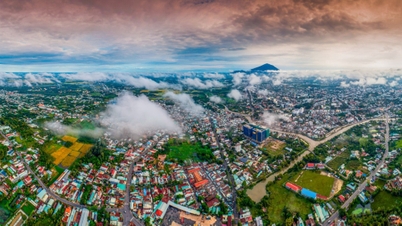




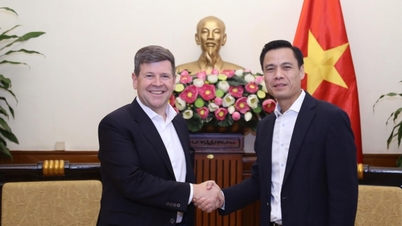

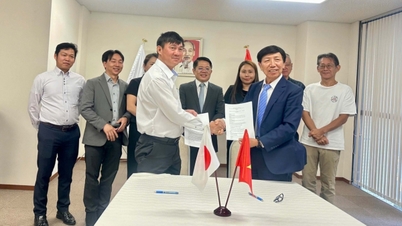
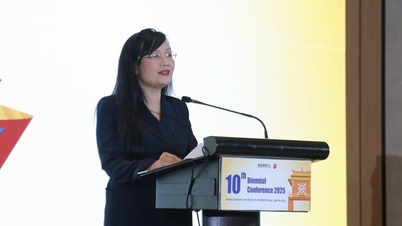
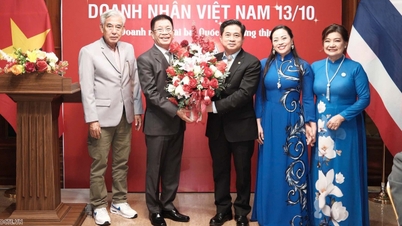
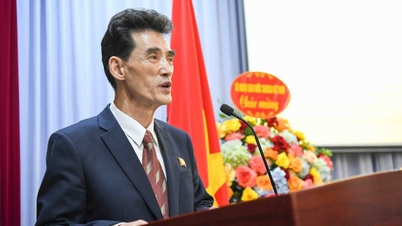






























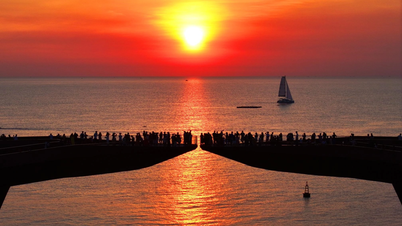











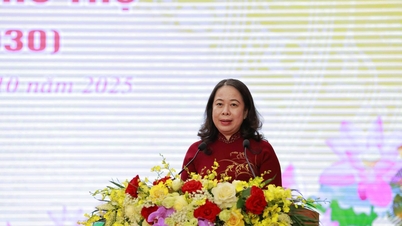



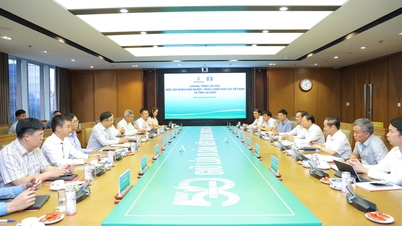
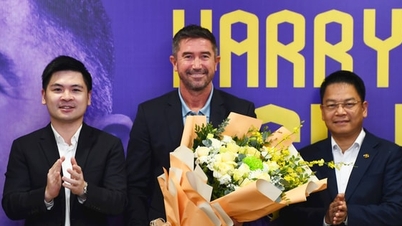

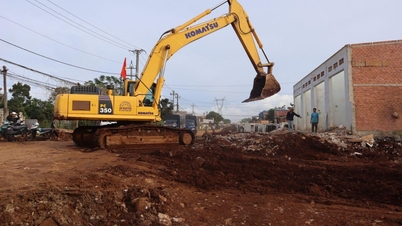



















Comment (0)